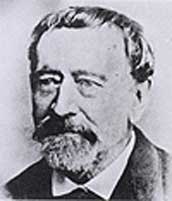
Many Southerners saw the November election of Republican Abraham Lincoln as President as the last straw. Strained relations between North and South had grown to the point that the two sides could no longer find any common ground. Nowhere was tension higher than in South Carolina. Secession has been threatened before, but never acted upon. Fearing the worst, South Carolina did not give President-elect Lincoln time to enter office before leaving the Union. The state seceded on December 20, 1860. For now it was an independent nation, as one observer noted, "too small to be a republic, and too large to be an insane asylum." South Carolina anxiously hoped that other states would join her. Now that it had declared itself free and independent, the next order of business was seizure of United States property in the state, now that the United States was a foreign power. Across the state, South Carolina militia seized arsenals and other federal property. The most contentious issue, however, was the possession of forts in Charleston Harbor. Guarding the entrance to the state's vital port city were Forts Moultrie and Sumter. Moultrie stood on an island hugging the shore, while Sumter was on a man-made island out in the harbor. South Carolinians demanded that the United States government withdraw the troops stationed there. The current President, James Buchanan, did little to address the situation. On the 26th, the Federal commander, Major Robert Anderson, decided to move his forces from Fort Moultrie and concentrate them all at Fort Sumter. He felt Moultrie was indefensible, and that by moving his entire force to Sumter, they were better protected out in the harbor. The move infuriated South Carolina and residents of Charleston in particular. They felt betrayed and demanded even louder for evacuation of Fort Sumter. Militia seized Fort Moultrie and surrounded Fort Sumter. A tense standoff began with neither side knowing what would happen next. This was all unprecedented and Americans everywhere debated the issues-- did a state have the right to secede? Could it seize federal property? What should the federal government do in response? Legally could it do anything? In Virginia caution was urged by Thomas S. Bocock, Congressman from Appomattox County. The Lynchburg Virginian recorded a speech that he delivered in Danville saying that, "in the event of the secession of one or more of the Gulf States, it would be the best policy for Virginia to remain in the Union and act as a mediator between the General Government and the Seceding States. Virginia, in the opinion of our Congressman, ought not to secede for the election of Lincoln, but should employ all her conservative influence to preserve the Union of the States…. " In news closer to home, the General Assembly voted to move the boundary line with Buckingham County. Previously the line bisected the farm of William W. Alvis, but a new survey placed the entire property in Buckingham County. In Appomattox County, residents followed this news with great interest. Secession and the fate of Fort Sumter were no doubt fiercely debated at the Clover Hill Tavern, Meeks General Store, and on the steps in front of the courthouse. As the holiday season approached, normally a festive time for everyone, tensions and uncertainty lingered in the air. No one knew it at the time, but this would be the last Christmas of peace for several years. |
Last updated: March 31, 2012
